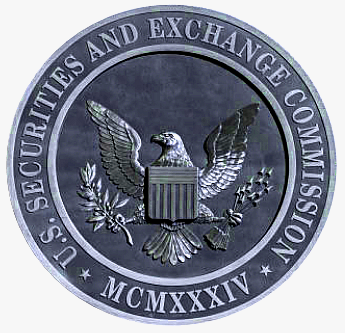Accredited InvestorsAltcoinAnatoli UnitskyAnti-Money Laundering (AML) In CryptoAPIArbitrageArtCoin TokenArticle DirectoryASICAuction Terminology GlossaryBasics of Stock Market InvestingBear MarketBest Crypto Payment Provider In the WorldBitcoinBlockchainBlockchain ConfirmationBlockchain Consensus MechanismBlockchain ForkBlockchain GlossaryBored Ape Yacht ClubBuild a Business That OutperformsBull MarketBuying SkyWay SharesByzantine Fault Tolerance (BFT) ExplainedCasascius CoinCentral Bank Digital Currency (CBDC)Centralized Crypto ExchangeCoinCoinsetCold WalletCollateralCommodity Futures Trading Commission (CFTC)Cross-Chain TechnologyCRUCrypto ExchangeCrypto GlossaryCrypto JokesCrypto Terms to KnowCrypto TickerCryptocurrencyCryptographyCryptojackingCryptounit BlockchainCryptounit GlossaryCryptounit ProgramdApp (Decentralized Application)Dead CoinDecentralized Exchange (DEX)Decentralized Finance (DeFi)Difference Between Bitcoin and EthereumDifferent Ways of Investing MoneyDigital CurrencyDistributed LedgerDo Your Own Research (DYOR)Dollar Cost Averaging (DCA)Dow Jones Industrial Average (DJIA)EncryptionERC-20ERC-721EthereumEvoScentFear Of Missing Out (FOMO)Fear, Uncertainty and Doubt (FUD)Fiat MoneyFNT Fintech CompanyGenesis BlockGlobal Unit PayGlossary of Banking TermsGlossary of Business TermsGlossary of Financial TermsHalvingHODLHot WalletHow Do I Start InvestingHow Rich is Satoshi Nakamoto?How to Create a BlockchainHow to Find Private InvestorsHow to Get Into FintechHow to Program Smart ContractsI Am Thrilled to Be a Part of This Global ProjectInitial Coin Offering (ICO)Initial Public Offering (IPO)Initial Token Offering (ITO)Innovation Basalt TechnologyInnovative Transportation TechnologiesInternational Bank Account Number (IBAN)Investing in Gold Mining StocksInvesting in Gold MiningJagerJoy of Missing Out (JOMO)Know Your Customer (KYC)LedgerLiquidity in CryptocurrencyMaker and Taker Fees in Crypto TradingMarket Capitalization (Market Cap)Meme CoinMetal Credit CardMetaMaskMillenials Now Have Access to Generational WealthMy Best Investment EverNew Digital EvolutionNFT GlossaryOff-Chain TransactionsOn-Chain TransactionsOpen Edition NFTPeer-to-Peer (P2P)Personal Loan GlossaryProbably the Best STO on the MarketProof of Stake (PoS)Real Estate Glossary of TermsReal Estate Investing GlossaryRebase TokenSecurities and Exchange Commission (SEC)Security Token ExchangesSecurity Token Offering (STO)Soulbound Decentralized Identities for Security TokensSoulbound ID Launch by Stobox Proves a SuccessSoulbound TokensStoboxStock Market GlossaryTestimonialsTether Platform and Token (USDT)UnitEx ExchangeUnitsky String TechnologiesUNTBUSDUValidatorWe Started Investing When We Were 25What are Blue Chip NFT?What are Blue Chip Stocks?What are Crypto Assets?What are Crypto Smart Contracts?What are CryptoPunks NFT?What are Digital Assets?What are Digital Collectibles?What are Gas Fees?What are Gas Wars?What are Hashmasks?What are Non Fungible Tokens?What are Non-Sufficient Funds (NSF)?What are Soulbound Tokens (SBT)?What are Stablecoins in Crypto?What are Transactions Per Second (TPS)?What are Utility NFTs?What are Utility Tokens?What Does Burning Crypto Mean?What Does Diamond Hands Mean?What Does Paper Hands Mean?What Does To The Moon Mean?What Does WAGMI Mean?What Happened to Satoshi Nakamoto?What is a 51% Attack?What is a Baby Boomer?What is a Backlink?What is a Banner?What is a Barcode?What is a Bid-Ask Spread in Crypto?What is a Block in Blockchain?What is a Block Reward?What is a Blockchain Address?What is a Blockchain Node?What is a Blockchain Oracle?What is a Blog?What is a Bond?What is a Bot?What is a Broker?What is a Business Accelerator?What is a Cash Cow?What is a Commercial Bank?What is a Commodity?What is a Con?What is a Credit?What is a Credit Limit?What is a Credit Rating?What is a Crypto Airdrop?What is a Crypto Bridge?What is a Crypto Scam?What is a Crypto Token?What is a Crypto Wallet?What is a Crypto Whale?What is a Crypto Winter?What is a Cryptocurrency Public Ledger?What is a Cryptocurrency Roadmap?What is a DAO?What is a Dark Pool?What is a Day Trader?What is a Dead Cat Bounce?What is a Default?What is a Derivative?What is a Digital Credit Card?What is a Fiscal Quarter?What is a Fungible Token?What is a Governance Token?What is a Grace Period?What is a Hard Fork?What is a Hot Wallet?What is a Hybrid Blockchain?What is a Hybrid PoW/PoS?What is a Joint Account?What is a Market Cap?What is a Merkle Tree in Blockchain?What is a Mining Farm?What is a Nonce? What is a PFP NFT?What is a POS System?What is a Prepaid Card?What is a Private Blockchain?What is a Private Key?What is a Public Blockchain?What is a Public Key?What is a Reserve Currency?What is a Ring Signature?What is a Routing Number?What is a Rug Pull in Crypto?What is a Safe Deposit Box?What is a Satoshi?What is a Security Token?What is a Seed Phrase?What is a Shitcoin?What is a Sidechain?What is a Soft Fork?What is a Spot Market?What is a State Bank?What is a SWIFT Code?What is a Tax Identification Number (TIN)?What is a Time Deposit?What is a Transaction Account?What is a Variable Interest Rate?What is a Virtual Assistant (VA)?What is a Virtual Card?What is a Virtual Currency?What is a Visa Card?What is a Whitelist in Crypto?What is a Whitepaper?What is Accounts Payable (AP)?What is AMA in Crypto?What is Amortization?What is an Accrual?What is an ACH Transfer?What is an Actuary?What is an Addendum?What is an Algorithm?What is an Angel Investor?What is an Annuity?What is an Asset?What is an ATM?What is an Atomic Swap?What is an Audit?What is an Avatar?What is an EIN?What is an Embargo?What is an Entrepreneur?What is an IDO (Initial Dex Offering)?What is an Interest Rate?What is an Internet cookie?What is an Investment Bank?What is an NFT Drop?What is an NFT Floor Price?What is an Ommer Block?What is an Orphan Block?What is an Outstanding Check?What is an Overdraft?What is Artificial Intelligence (AI)?What is B2B (Business-to-Business)?What is B2G (Business-to-Government)?What is Bartering?What is Bitcoin Dominance?What is Bitcoin Pizza Day?What is Blockchain Immutability?What is Blockchain Used For?What is BRICS?What is Business-to-Consumer (B2C)?What is C2C (Customer to Customer)?What is Capitalism?What is Catfishing?What is CFD Trading?What is Check Kiting?What is Cloud Mining?What is Communism?What is Content Marketing?What is Decentralization in Blockchain?What is DeFi in Crypto?What is Delisting?What is Depreciation?What is Digital Marketing?What is Diversification?What is Double Spending?What is Dumb Money?What is Dumping?What is Earnings Per Share (EPS)?What is Economics?What is Email Marketing?What is Equity?What is Etherscan?What is Fintech?What is Foreign currency?What is Forex?What is Fundamental Analysis (FA)?What is GameFi?What is Generative Art NFT?What is Gwei?What is Hard Currency?What is Hash Rate?What is Hashing in Blockchain?What is Inflation?What is Initial Game Offering (IGO)?What is Interest?What is Interest Income?What is Mainnet?What is Mastercard?What is Metaverse in Crypto?What is Mining in Cryptocurrency?What is Minting NFT?What is Mobile Banking?What is Money Laundering?What is NFT Alpha?What is NFT Metadata?What is NFT Rarity?What is NGMI Meaning?What is Nominal Interest Rate?What is Online Banking?What is Open-End Credit?What is OpenSea NFT Marketplace?What is Personal Identification Number (PIN)?What is Play-to-Earn?What is Polygon?What is Proof of Authority (PoA)?What is Proof of Work (PoW)?What is Public Key Cryptography?What is Pump and Dump?What is Quantum Computing?What is Refinancing?What is Retail Banking?What is Ripple?What is Sharding?What is Slippage in Crypto?What is Smart Money?What is Solvency?What is Soulbound ID?What is SSL?What is Staking in Cryptocurrency?What is Technical Analysis (TA)?What is Testnet?What is the Ask Price?What is the Better Business Bureau (BBB)?What is the Bid Price?What is the Dark Web?What is the InterPlanetary File System (IPFS)?What is the Gold Standard?What is the Lightning Network?What is the Prime Rate?What is the Sandbox?What is the Secondary Market?What is the World Bank?What is Tier 1 Capital?What is Tokenomics?What is TRC-20?What is Universal Banking?What is Unspent Transaction Output (UTXO)?What is Usury?What is Volatility in Crypto?What is Wash Trading?What is Web3?What is Whisper?What is XRP?What is Zero-Knowledge Proof (ZKP)?Who is Beeple?Who is Satoshi Nakamoto?Who is Vitalik Buterin?Why Tokenization is a Safe HavenWhy You Should Try Your Hand at Trading
What is a Dark Pool?
- Home
- Glossary of Business Terms
- What is a Dark Pool?
Dark pools are a type of privately organized financial forum or exchange for trading securities.

They have become increasingly popular among institutional investors as they provide a way to trade large volumes of securities without revealing their intentions until after the trade is executed and reported.
What is a Dark Pool?
A dark pool is a private exchange where institutional investors can buy and sell securities without revealing their intentions to the public until after the trade is completed. They are called "dark" because the trades that occur in these pools are not visible to the public, unlike trades that take place on public exchanges.
Dark pools were originally created as a way for institutional investors to trade large volumes of securities without impacting the market. When a large trade is executed on a public exchange, it can affect the price of the security being traded, making it more expensive for the investor to buy or sell the remaining shares. Dark pools allow institutional investors to avoid this problem by trading anonymously with each other.
How do Dark Pools Work?
Dark pools are operated by financial institutions, such as banks or brokerage firms, that act as intermediaries between buyers and sellers. These institutions create private exchanges where their clients can buy and sell securities without revealing their intentions to the public.
When an investor wants to buy or sell a security on a dark pool, they submit an order to their financial institution. The institution then matches the order with another investor who is looking to buy or sell the same security at the same price. The trade is executed, and the financial institution reports the trade to the relevant authorities, such as the Securities and Exchange Commission (SEC).
Benefits of Dark Pools
The primary benefit of using dark pools is the ability to trade large volumes of securities without impacting the market. This is particularly important for institutional investors who need to buy or sell large blocks of shares, as the price of the security can be affected by their trade if it is executed on a public exchange.
Dark pools also provide a level of anonymity for institutional investors, which can be beneficial in certain situations. For example, if a large investor is trying to acquire a large stake in a company, they may not want to reveal their intentions to the public until after the transaction is completed. Using a dark pool allows them to keep their intentions secret until after the trade is executed.
Drawbacks of Dark Pools
While dark pools provide benefits to institutional investors, they also have several drawbacks that have led to controversy. One of the main concerns is that dark pools can be used to manipulate the market. Because trades in dark pools are not visible to the public, it is possible for investors to manipulate the price of a security by buying or selling large volumes of shares in a dark pool. This can create a false impression of the market's supply and demand for the security.
Another concern is that dark pools can create a two-tiered market, where institutional investors have access to private exchanges that provide advantages over public exchanges. This can put individual investors at a disadvantage, as they do not have access to the same opportunities as institutional investors.
Controversies Surrounding Dark Pools
Dark pools have been the subject of several controversies in recent years. In 2015, Barclays was fined $70 million for misleading investors about the nature of its dark pool. The bank was accused of favoring high-frequency traders over other investors in its dark pool, which led to accusations of market manipulation.
In 2018, the SEC charged Liquidnet, a dark pool operator, with improperly using its subscribers' confidential trading information to market its services to other subscribers. The SEC alleged that Liquidnet violated the duty of confidentiality it owed to its subscribers by using their confidential information to market its services to other subscribers. Liquidnet settled with the SEC for $2 million without admitting or denying the charges.
The controversies surrounding dark pools have led to increased scrutiny from regulators and calls for greater transparency. Some regulators have called for dark pools to be banned altogether, while others have proposed regulations to increase transparency and prevent market manipulation.
Impact on the Financial Markets
Dark pools have had a significant impact on the financial markets, particularly in recent years as their use has become more widespread. According to some estimates, as much as 40% of all trading in the United States occurs in dark pools.
The impact of dark pools on the financial markets is a subject of debate. Some argue that dark pools have contributed to market fragmentation and reduced transparency, while others argue that they provide benefits to institutional investors and increase market efficiency.
Despite the controversies surrounding dark pools, it is clear that they have become an important part of the financial landscape. As the use of dark pools continues to grow, it is likely that regulators will continue to grapple with the challenges they present and work to strike a balance between the benefits and drawbacks of their use.
Related Articles

Securities and Exchange Commission (SEC)
The SEC is a government agency responsible for regulating and overseeing the securities industry in the United States.

What is an Angel Investor?
Angel investors are typically high net worth individuals who invest their own money in early-stage startups.
- Home
- Glossary of Business Terms
- What is a Dark Pool?